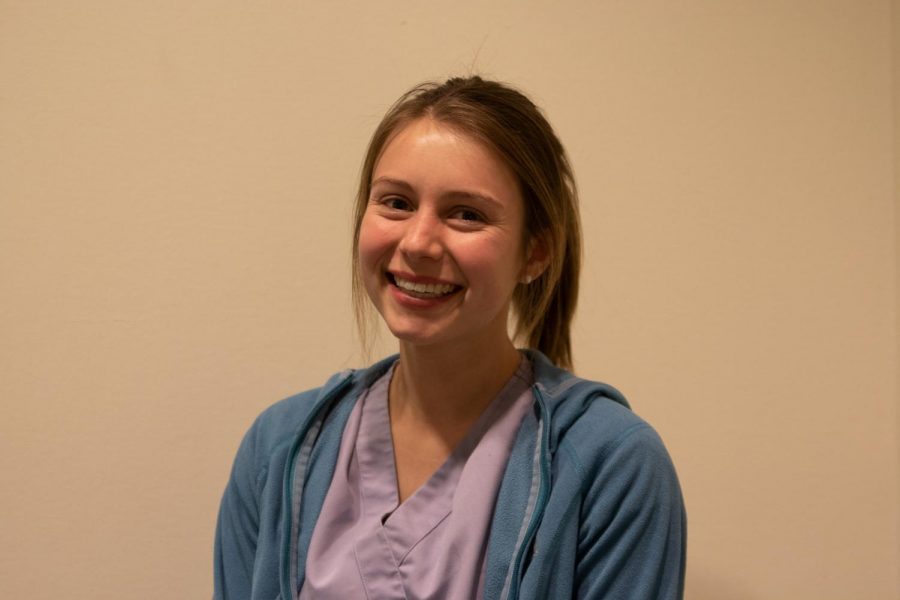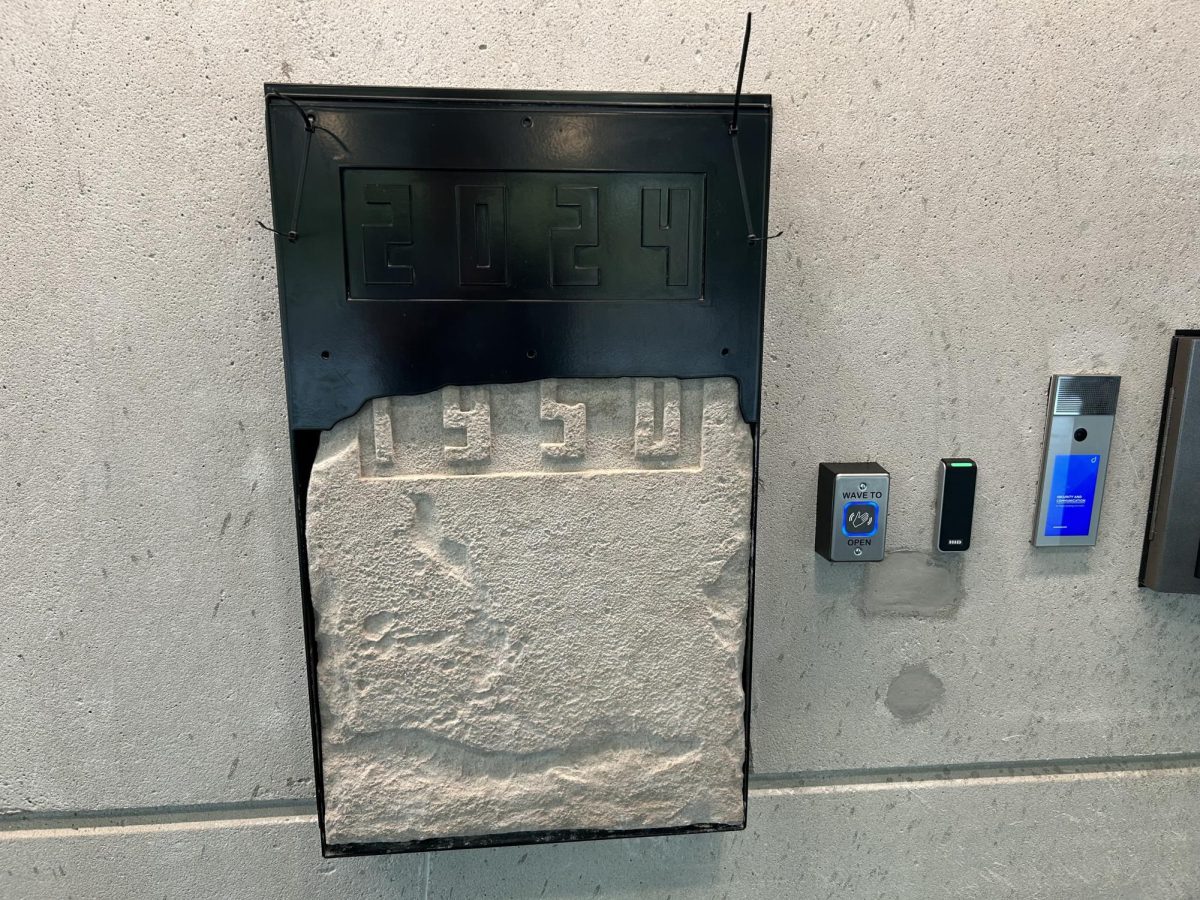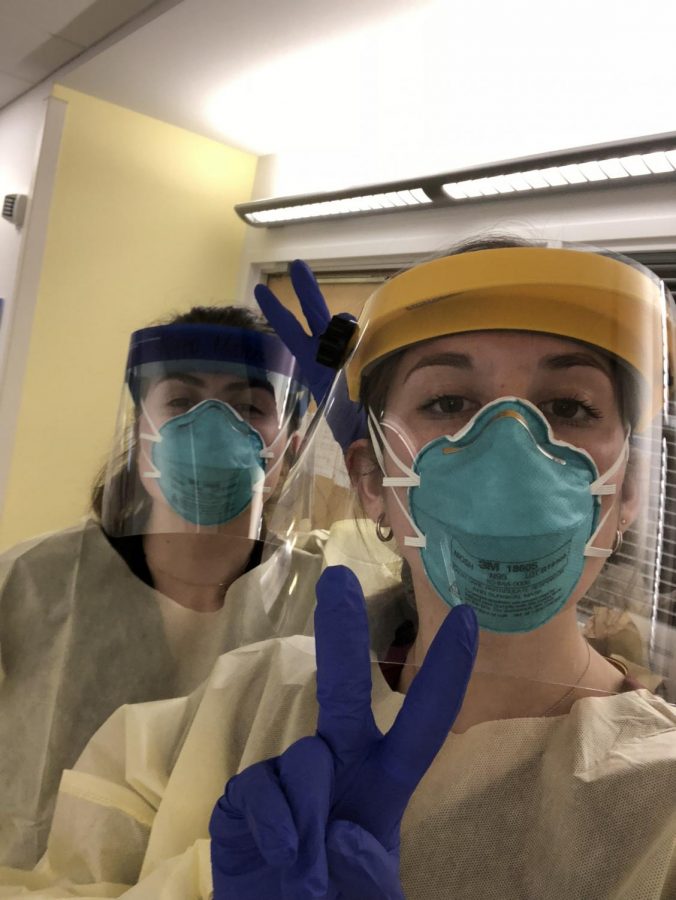The “Readiness Evaluation and Discharge Interventions” study, led by principal investigator and professor in the Marquette College of Nursing, Marianne Weiss, was published in the Journal of the American Medical Association Network Open Jan. 25.
The randomized clinical trial analyzed efficient ways for nurses to better prepare their patients for discharge and reduce future readmission rates, Weiss said.
About 10 to 20 percent of patients who leave the hospital don’t feel like they’re ready to go home yet, Weiss said.
These patients have trouble managing at home, they don’t feel comfortable, they’re nervous and they sometimes return to the emergency room or are readmitted to the hospital, she said.
“Our goal was to try to intervene while they were in the hospital to make that transition to home better, so that they wouldn’t need to come back to the hospital,” Weiss said.
Weiss said she and her large team of nurse and economic researchers began the three-year project at the end of 2014. They collected data for 17 months and took the remainder of the time to compile the results.
Before beginning their research, Weiss and her team collaborated and submitted the project for funding to the American Nurse Credentialing Center, a part of the American Nurses Association. After review, the study was selected for funding, and the ANCC as a Magnet Hospital for its exemplary nursing care were invited to participate in the project, Weiss said.
In total, her research team of engaged with 33 hospitals, trained more than 1,500 nurses in study procedures and collected data from more than 200,000 patients, she said.
“We developed a protocol that nurses would use with patients going home to assess whether patients felt ready to go home, and whether the nurse felt that the patient was ready to go home on the day of discharge,” Weiss said.
Readiness to return home was measured with an eight-item questionnaire with four major categories: personal status, knowledge, perceived coping ability and expected support.
These categories were designed to make sure patients are both physically and emotionally ready to leave the hospital, Weiss said.
“Think about a mother going home from the hospital. The mother doesn’t just go home to take care of herself. She goes home to take care of her family, too,” Weiss said. “We ask questions like, can she manage the demands? Does she have enough support to help at home if there’s a problem?”
One nursing unit in each of the 33 hospitals was trained in this procedure, said Weiss.
Of the 200,000 patients in the database, half of them received the protocol and the other half did not. A team of statisticians took the data and were able to compare the outcomes for patients who had received the protocol and patients who had not received the protocol, Weiss said.
Patients who didn’t receive the protocol were assessed by the nurses’ knowledge of the patients’ conditions and readiness for discharge, Weiss said.
According to the study, readmission rates were reduced by up to 1.79 percentage points when nurses conducted the questionnaire and asked for direct input from the patient.
“The big takeaway is that in hospital units where the readmission rate tends to be high, protocol did help reduce readmissions,” Weiss said.
She said the protocol did not significantly help in units that tended to have low readmission rates because it’s hard to lower already low readmission rates.
Weiss said that in a study this big, there are many findings and even more to come as the research team continues to analyze data.
Ultimately, this study is important for two reasons, she said.
“One, it documents the contribution that nurses individually make to patient outcomes even after they go home from the hospital,” Weiss said. “We’re not just worried about patients getting out the door of a hospital. We don’t just wave goodbye, we’re concerned about what happens to them after they go home, so measuring those outcomes after they go home is important.”
Weiss said although health care professionals work in teams, she hopes this study highlights one way nurses directly contribute to patient outcomes.
“I think the second (important) thing (about this study) is (encouraging) patient engagement in conversations about decisions in planning their health care,” Weiss said.
Weiss said the second important thing about the study is the patient’s decision in planning and going home.
Weiss said this initiative follows the national agenda for health care.
“There is a huge national agenda for patients right now that focuses on patient engagement in their own health care,” Weiss said. “These findings really support the notion that it’s important that we don’t just do tasks with patients but that we really engage them in the conversation about what will make them as an individual feel more ready to go home.”
The READI study is now just one of the many things that sets the College of Nursing apart from other programs in the nation, Grace Hegemann, a senior in the College of Nursing, said.
The college’s mission statement also sets it apart, she added.
“Marquette is one of the few colleges in the country that focuses on social justice in their mission,” Hegemann said.
She said that Marquette’s College of Nursing emphasizes care for the individual patient and teaches a more well rounded approach than other universities.
“In nursing school, I have not just learned about physiology and pharmacology, but about the idea of ‘cura personalis,’ which is caring for more than just the physical disease by caring for the entire person’s spiritual care,” Hegemann said.
“I think it’s really cool that our professors do so much research and are still really engaged in trying to better practice,” Hegeman said. “They’re not just teaching us basic nursing skills, but they’re actually able to contribute to studies and help potentially change the future of healthcare through their research. I think that’s incredible.”
Kylie Champion, a freshman in the College of Nursing, said she came to Marquette specifically for the nursing program.
“I chose Marquette and nursing because I’ve always wanted to do something that helps other people and make an impact on someone’s life,” Champion said. “I feel like the nursing program here strives for that and talks about actually making that connection with the patient, and I didn’t realize how important that was, but it really is. Obviously the study proves that.”
Even in her first-year nursing classes, Champion said she is learning the importance of interacting with patients.
“It’s so important to treat patients with kindness and love because they’re going through a really hard time,” Champion said. “I love that Marquette cares about that and teaches us that we need to put that into our nursing practice because I don’t think that many other nursing universities do that.”
Hegemann said that after reading the study, she hopes more hospitals utilize discharge protocol that engages patients in their recovery.
“A big part of a nurse’s job is taking care of their patient in the hospital, but also giving them the tools that they need to take care of themselves at home, whether that’s pamphlets or patient teaching, or having them ask questions and engage in discussions,” Hegemann said. “This study is really important in determining patient success because if patients don’t understand how to care for themselves, the higher chance that something’s going to happen and they will be readmitted.”
Weiss said many of the hospitals involved in the study have already changed their protocol to engage patients in more conversation.
“(This study) has a fundamental effect on what people do and the hospitals tell us that,” Weiss said.” Hospitals that did this study did these protocols for over a year. It became the way they do discharge, so many of them have continued on to do that.”
Weiss said in its entirety, the READI study is the epitome of what Marquette is: to care for the individual patient.
“This really focuses on the individuality of the patient’s needs by talking with the individual patient and not just assuming going home means exactly the same things because they don’t,” Weiss said. “Individual situations at home are very different, and it’s their context that makes a difference about how they handle their disease condition once they’ve left the hospital and if they need to come back for additional services.”







Tricia • Feb 17, 2019 at 4:43 pm
I don’t see a way to private message you so I’m sorry this might appear as a public comment. If there is some way to keep it out of view of readers and just take in grammar suggestion, that would be preferable.
Excerpt: “. . . Weiss said her and her large team of nurse and economic researchers . . . .”
My edit would be: ” . . . Weiss said SHE and her large team of nurse and economic researchers . . . . ”
Just in case you might like to correct the text online, if possible . . . and to register in your mind in case this was not just a typical error of speed or fatigue.
Good luck with a great endeavor for all writing ahead.
TH – Broadcasting major ‘ 75.